Ladies, we have made some amazing strides in a short amount of time. We’ve moved from pink weights to swinging kettlebells almost as heavy or heavier than we are. Women of all types and ages have taken the leap from weak to strong. Congratulations ladies, we did it! We are still doing it!
Ladies, we have made some amazing strides in a short amount of time. We’ve moved from pink weights to swinging kettlebells almost as heavy or heavier than we are. Women of all types and ages have taken the leap from weak to strong. Congratulations ladies, we did it! We are still doing it!
More women are embracing strength as a necessary part of their training. We are clearly not afraid to be strong. The movement of females lifting heavier, while still keeping their feminity, realizing they can feel better without looking like Arnold Schwarzenegger is spreading like wildfire.
It was uncommon years ago to see females, much less new moms, swinging around heavy weights or doing pull-ups while smiling at their new baby. It has been an honor to be an integral part of the female movement towards kettlebells, which opened the flood gates to strength and the mastering of pull-ups, dead lifts, and so much more.
But have we taken it too far? We train like men and pound for pound some of us are even stronger than men. The question is: are we supposed to eat like men too?
Ladies, ladies, ladies, we are very special creatures. We have unique nutritional requirements that keep us running efficiently. After the age of thirty it becomes imperative to feed those special needs.
Otherwise, as the years go by, you may be setting yourself up for major hormonal imbalances, deficiencies, and adrenal fatigue. After all, we look different than men, we have menstrual cycles, we can reproduce, and we are beautiful. Let’s focus on what a woman needs to eat and not just on what all people should eat.
Let’s dissect this a little bit further. Men and women are flocking to the IF (intermittent fasting) rage as well as various low carb and high protein diets. If you are not familiar with IF, it’s a period of time when you don’t consume any food followed by a window of food consumption. It can be done several ways. To learn more about it, Mark’s Daily Apple breaks it down well.
I am neither a scientist nor a doctor, but I absorb information and approach eating with lots of thought. Including my years in college, I have been studying kinesiology and nutrition for a total of fifteen years, which compels me to thoroughly analyze every approach. Jumping on a bandwagon is not something I do easily. So let’s take a look at IF with an analytical eye.
Before I go any further, let’s get straight down to reproductive health. It’s no secret that females of all ages who train very hard and restrict their calories can stop menstruating. Females who suffer from eating disorders such as bulimia and anorexia also tend to stop having periods.
Mental stress can stop a female from menstruating due to the stress put on the hypothalamus, the area of your brain that controls hormones and regulates periods. The end result is often infertility and brittle, weak bones. Ladies, if you are experiencing any of these symptoms, I suggest that you take a long, hard look at your current eating habits and prioritize.
A study found by Stefani Ruper, who wrote an incredible review on her blog about fasting for women, showed that there are significant physiological changes for females that take place with calorie restriction and fasting. Some of what has been documented is the masculinization of female rats.
They become more energetic and mentally focused, which is one of the main perks of this popular way of eating. When push comes to shove, however, this benefit is actually a stress effect on the body that causes it to become more “manly” and thus want to find food. On the other hand, the male rats showed they didn’t have a brain chemistry change like the females.
This explains why some women are raving about their strength training while practicing IF, but the long term effects are yet unknown. I’ll be the first to admit that some IF can give you an increased sense of energy and strength. Eating raw vegan did that in the beginning for me, as well. In the end, however, it comes down to hormonal health and that’s where women could end up paying a big price.
Here is a quote directly from Stefani’s write up:
MDA cites this article as a ‘great overview’ of the health benefits of intermittent fasting. This startled me because the article MDA cited was for me one of the strongest proponents of sex-specific differences in response to fasting. This occurred in two striking areas: a) women in studies covered by the review did not experience increased insulin sensitivity with IF regimes and b) women actually experienced a decrease in glucose tolerance. These two phenomena mean that women’s metabolisms suffered from IF.The men’s metabolisms on the other hand improved with IF across the board. Recall that the review was reported by MDA as ‘a great overview of benefits [of IF].’
I decided to do some of my own research and spoke to a few healthy, respected, and strong female coaches about their foray into intermittent fasting or some sort of caloric restriction. The ages of these females range from 29 to mid-40s.
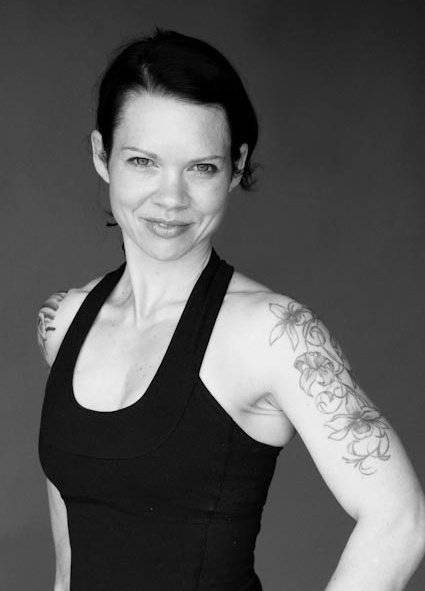
Let’s begin with Keira Newton, owner of DKB Fitness and mother of two. Keira practiced IF for a four-month period. She had her blood work done prior to her IF as well as after. The blood work after IF showed that her blood sugar was lower, but her cortisol levels were high and adrenals were stressed.
Newton said, “I had irregular periods, hard time sleeping, was stressed, and irritable. When I started eating normally again, I packed on five pound instantly, and have had a hard time getting it off ever since.” Another trainer at her gym had the same experience. She initially lost weight, but then gained ten pounds in one month once her body adapted.
What happened to Keira appears to be very common in the majority of females going head first into IF. Many women begin to drink an incredible amount of coffee to sustain their energy and suppress their appetite in order to get through their fasting window.
Needing to get through the day with an excessive amount of caffeine is enough of a warning bell to run the other direction. I, too, developed a coffee addiction that I’d never had before experimenting with fasting. If you didn’t have a coffee addiction before IF, you will after.
Not that there is anything wrong with a cup or two of joe, in fact it has many benefits, but on the flip side, to live on caffeine in order to suppress your appetite and get that high everyday can put you into adrenal fatigue very quickly. I will go into a bit more detail on how later on in this article.
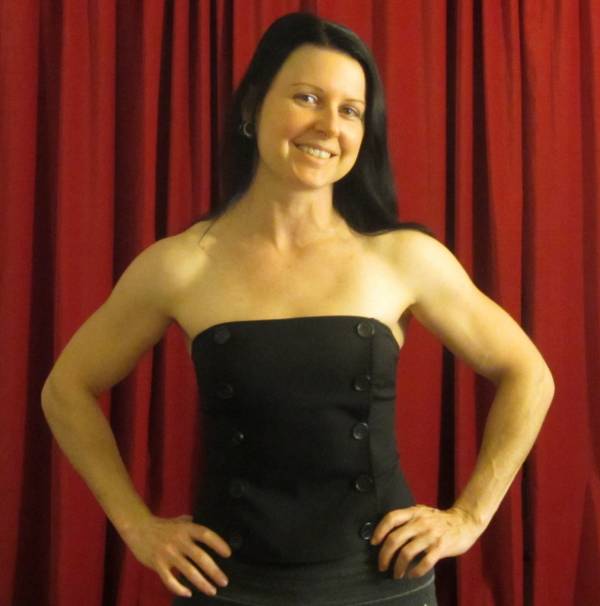
Adrienne Harvey, owner of Girya Girl Fitness, RKC Level 2, and super strong, petite, lean female shared with me her view and experiences with fasting. She has found it to be counterproductive for her and after some nightmare experiences years ago, which lead her down a seriously unhealthy path, she will never fast again.
“A disturbing trend I keep seeing, even from fellow female fitness professionals is the confession of some kind of binge or cheat quickly followed by IF. Back and forth, over and over,” said Adrienne. Ask yourself, does this seem like a healthy pattern? Splurge and then starve is an eating disorder waiting to happen. Adrienne calls it “self punishment” and wonders if females are really doing this for health.
Adrienne thoroughly enjoys eating a Primal-Blueprint type of diet, which works wonderfully for her. She recognizes there are many people who can also flourish with vegetarian, vegan, paleo, and other types of eating. In regards to fasting, though, she explained:
Everyone will have some moment of weakness or splurge, but why follow it with a round of what really looks like some form of punishment? If you aren’t enjoying your food now, and loving how it makes you feel, please keep searching for what will ultimately work for you…After seeing so many people talk about how IF is central to their fat loss, I wanted you to know that you can get and stay lean WITHOUT doing it, too. Choose foods that are natural and that nourish you and your activities.
I had the honor of communicating with Dr. Krista Scott-Dixon, of Stumptuous, and getting some solid information from her regarding females and intermittent fasting. Not only is Krista one of the most educated and respected females when it comes to nutrition and training, but she has participated in the training/bodybuilding world for over twenty years.
She has a laundry list of published articles and credentials along with working along side Dr. John Berardi at Precision Nutrition. So when Krista speaks, I listen! Krista has done a ton of experimenting on herself, including with IF. The lasting words that came out of Krista’s mouth regarding IF were these: “Fuck IF.”
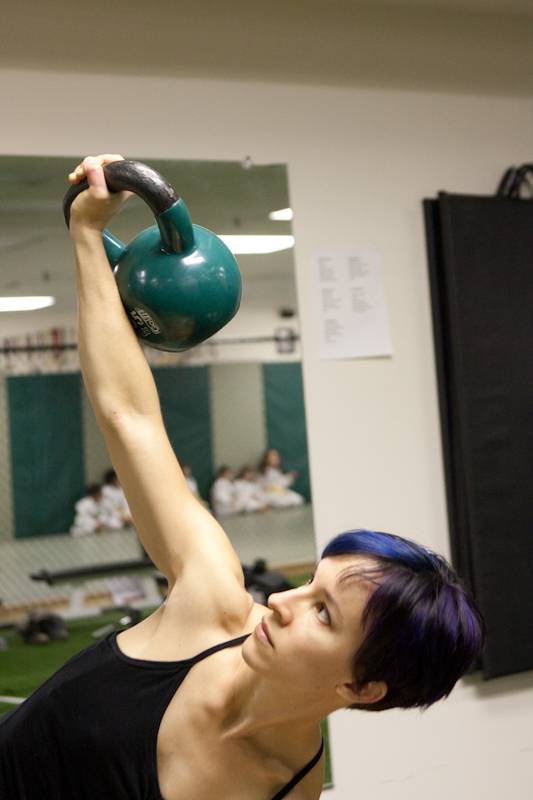
Before we dig into more reasons why IF is catastrophic for females, I’d like to highlight the upside to IF when done sparingly. Krista shared some of these feelings, as well. An occasional fast, whether it is for religious purposes, sickness, or inflammation reduction, can be safe and useful.
Fasting for a few hours or a day here and there can teach you that you won’t dwindle away, that you will survive, and you will actually get a chance to experience real hunger. Krista explained some of the positives as, “cellular cleanup, enhancing insulin sensitivity, and reducing inflammation.”
Krista will do a partial fast on Sundays when she is relaxed, calm, well rested, and just doesn’t want to bother making breakfast, but she said, “calling it a ‘fast’ is sort of glorifying it with a sense of purpose.” Then she will get around to eating in the mid-afternoon. “IF has helped me observe and more accurately understand my physical hunger signals, which has been very helpful. Before, I would just eat because some bodybuilder told me I had to. I wasn’t eating when I was actually hungry. I was afraid to be hungry. That’s not good either.”
Your hormones don’t like to be messed with and it doesn’t take much to throw them over the edge. If you don’t understand how important your hormones are to your entire system, you will discover it quickly after doing a few rounds of IF.
Unfortunately for Krista, doing IF to cut weight for a grappling competition actually put her in premature menopause at the age of 35. It also lead her to what she calls “crazy brain” and began a major eating disorder. With no hormones production in action, she immediately put on ten pounds, mostly in the midsection. Due to the fact that she had no estrogen/progesterone, her body was stressed, which made her panic that much more.
This led her into a vicious cycle of fasting, restricting, then bingeing. Krista clearly stated, “If you didn’t have an eating disorder before you started IF, you will afterwards.” That isn’t a chance I’d like to take. I too, however, have had my own battles with food over the last six to twelve months.
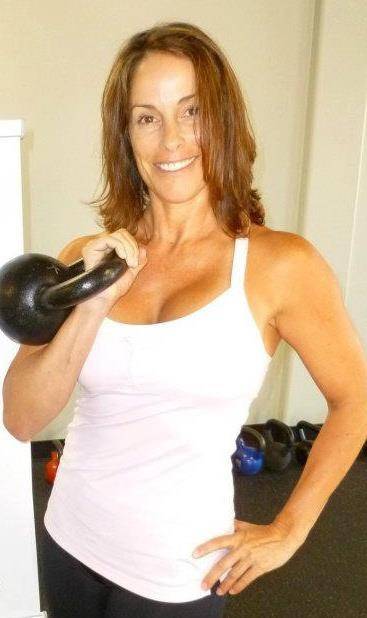
Gabby Disson-Eborall, owner of North Beach Kettlebell, RKC Level 2, discussed her experience with intermittent fasting. “For me personally it was a train wreck. Some of the biggest issues that I noticed were mood swings and most importantly it was beginning to trigger a long dormant eating disorder tendency for me. That scared me.”
Gabby, too, fell into the restrict and then binge cycle that so many of us naturally gravitate towards when we put extra stress on our bodies. As females, don’t we have enough stress in our lives? Why add more that can physically damage our body?
Gabby’s conclusion about her foray into IF was that it put her in too much of a vulnerable position. She has now gone back to a diet heavy in plants and healthy fats, and excludes dairy, wheat, grains, and most sugars (except honey and fruit) which works well for her.
Most females, including myself, did experience the extra surge of wiry energy. At first it feels awesome – being able to run a million miles a minute like you just downed ten cups of coffee. The dark side is that the extra surge of energy actually lights up the sympathetic nervous system (SNS) system like no other.
If you know anything about the SNS it’s best known for the fight-or-flight response. Stressing the crap out of the SNS, which is what IF does, along with your ample coffee intake, is what causes adrenal fatigue and, even worse, heart palpitations and extreme anxiety.
Many IFers talk about the restlessness and insomnia they experienced. If you are looking to quickly age yourself ten or twenty years then by all means amp up your SNS. The fountain of youth will not be on your side. This exact reason is one of the main culprits that killed Keira’s hormonal system.
Luckily, after a very long road, Keira has been able to heal herself. Thanks to help from an acupuncturist, adding stress relievers and herbs into her diet, along with eating three or more meals throughout the day, she now feels much better.
Keira’s final words on the matter, “I listen to my body and try to keep my portions in check, that way I don’t starve and binge which is what I did with IF. I stay away (or do best with staying away) from all gluten, dairy, and sugar. I can get mentally crazy about food, so I don’t track my calories, or starve myself. I feel much better, but it was a long road home.”
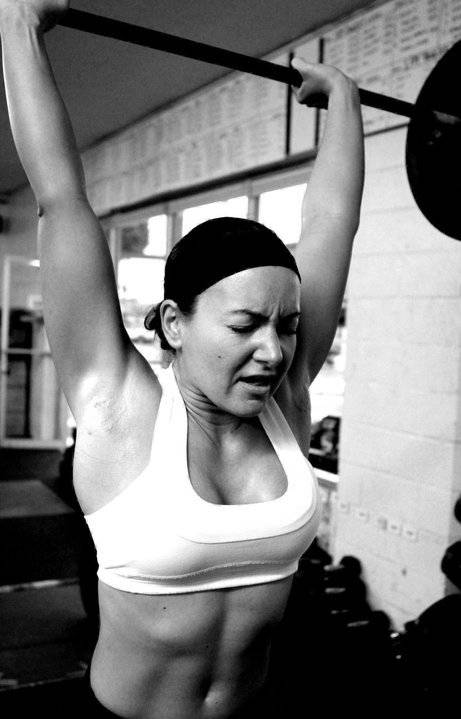
Becca Borawski, managing editor for BreakingMuscle and avid fitness athlete extraordinaire, also spoke to me about her experiment with IF. She found the complete opposite effect when it came to the wiry energy.
She had a difficult time focusing throughout the day, was starving, experienced migraines, and was just plain miserable. Becca found herself bingeing and wanting to eat food she normally would have never craved.
“I found myself wanting ice cream, candy bars, and junk food. I never eat or crave those things normally,” said Becca. Although she did lose a few pounds initially, she said, “I became a hormonal crazy-person. I was super emotional, lacking in rational thinking, anxious, and generally all over the map.
That was how it went both times I tried IF. The weight loss didn’t continue, the stress of being hungry did, and after the second attempt at IF both my boyfriend and I decided I just shouldn’t do it.”
Becca has found that a steady intake of calories throughout the day works best for her both mentally and physically. It keeps her stress down, her mood in check, and since she’s prone to headaches, it often helps prevent migraines.
Becca’s final advice regarding IF or caloric restriction: “I think people should try anything they are interested in, and maybe it would be different for someone younger or someone of a different body type, but they should be aware that all the benefits that are hyped are not going to happen for everybody and seem more likely to happen in men than in women.”
The detrimental common effects of IF for the female population need to be put in the spotlight. That is the main reason why I chose to write this article and did the research to obtain collaborative stories and input. All of the coaches in this article who shared their experiences were initially inspired to try intermittent fasting for different reasons.
When I first heard about IF, it brought me straight back to my Warrior Diet days. During that time, my metabolism took a plunge and dinner eventually became an out of control binge session.
I would wake up bloated and tired every morning and thus a vicious cycle was born. I began to drink caffeine, which I never needed before, to reverse the effects from lack of solid sleep due to going to bed on a full stomach.
This mirrors what IF does for females, but at least with the Warrior Diet I was able to eat a few berries, nuts, or a hard boiled egg throughout the day. I lost a few pounds in the very beginning, but then my body hated me. Hence the reason my stress bingeing at night began.
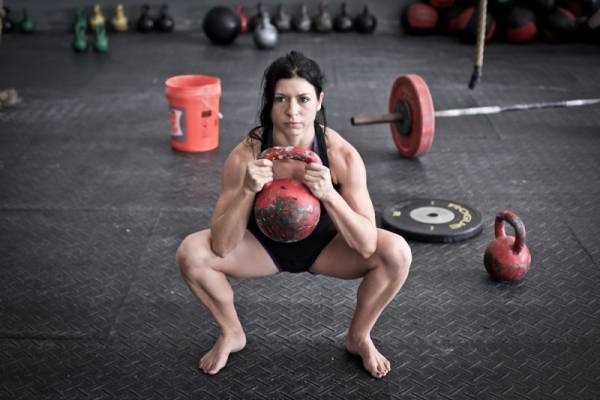
The times that the Warrior Diet did work wonders for me was when I needed to be in that flight-or-fight mode – the days I spent filming my workout DVDs, which required up to ten hours of constant training and talking, or the days when I would conduct kettlebell workshops.
I knew if I stopped to eat a large meal, I might crash, become sluggish, and thus not have the motivational energy I needed to get through those special days. Trail mix, coconut water, and a hard-boiled egg is all I needed. Using fasting sparingly is what I personally would recommend.
Fasting is the latest nutrition rage, and who everyone wants the latest and greatest magic pill, the easiest way to being lean all the time. During my research I found another story I felt was important for all you females out there to read. Here is a great blog post called, How Intermittent Fasting Saved Me While Slowly Killing Me. I highly suggest you give it a read.
In the end, you have to find the nutrition style that works best for YOU. There are a few females raving about IF. They are thoroughly enjoying their results and that’s why so many females are jumping on the bandwagon. There are loads of articles written by ripped young men that talk about how IF is the next best thing.
Dr. Krista Scott-Dixon described them as “the young quantified-self-type dudes yapping about how great they feel on Bulletproof Coffee and bacon.” The truth is most of these men have never trained a female in their life and they know absolutely nothing about female hormonal health.
It will be interesting to see the long-term effects on the females who are adamant in continuing to practice this method for a sustainable amount of time. Conducting a study on their hormonal make-up when they approach their 40s and 50s should be helpful. I am, by no means, telling you not to try IF.
What I am highlighting here are studies, real stories from real females, and things you should be aware of before embarking on that journey. My two little girls are only three and five, but if they were to come to me in ten to fifteen years asking me for a safe way for them to divide their food up, fasting would be one I would encourage them to steer clear of.
In the meantime, with so many respectable females being brave and sharing their nightmare experiences, I only hope that women will approach any kind of starvation or restriction eating with serious caution.
These are highly educated women who have no previous eating disorder history and they are confessing that they were either already there or in danger of going down the eating disorder path. The road back to normalcy is a long and painful one. We need to make this apparent for everyone, especially our youth.
Past studies have shown that during high school and college is when eating disorders peak, but now kids are beginning to show signs as early as kindergarten. More than ten million women and men suffer from eating disorders according to medical student Holly Peek from Tulane University, who wrote this article about eating disorders and how they are affecting college students.
It’s easy for a young woman to be encouraged to go down the wrong eating path. There are already enough body image and emotional eating issues for young women and men to deal with, so let’s lead the way and continue to show that being strong and training like a (wo)man is empowering, healthy, and sexy.
Strong IS the New Sexy. Let’s lead by example and demonstrate to women they can have healthy relationships with food and be strong, lean, and eat when their hunger cues tell them to eat. It’s time to focus on what’s healthy for each individuals lifestyle.
We must encourage smart food choices by listening and being in tune with our bodies and knowing the difference between feeling full and feeling hungry. Learning about what hunger feels like and when to eat certain combinations of food in order to keep ones mood and blood levels stable should be our focus.
This is the safest way to a balanced way of eating that can help prevent unnecessary adrenal fatigue, hormonal dysfunction, depression, and an array of eating disorders.






